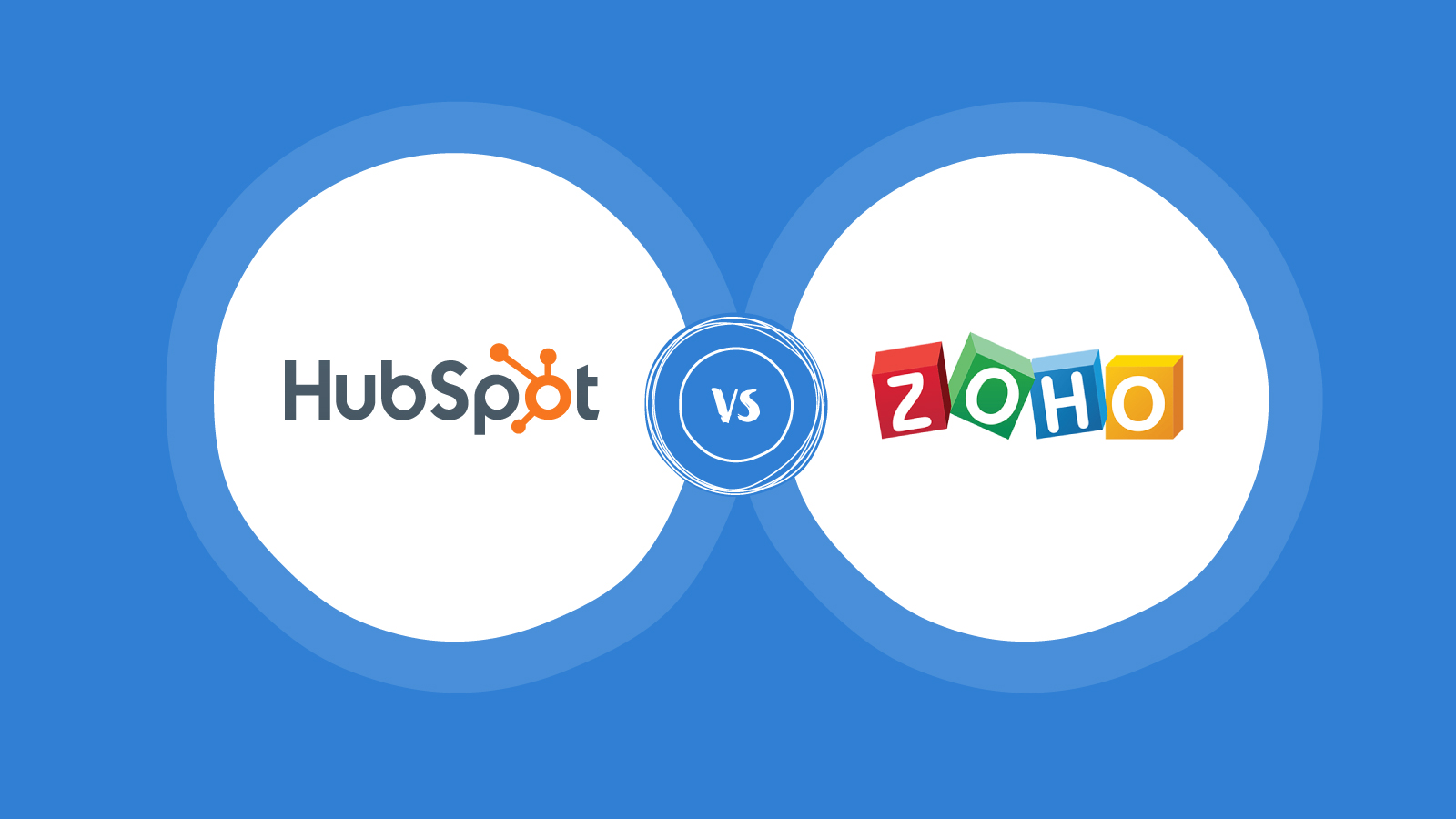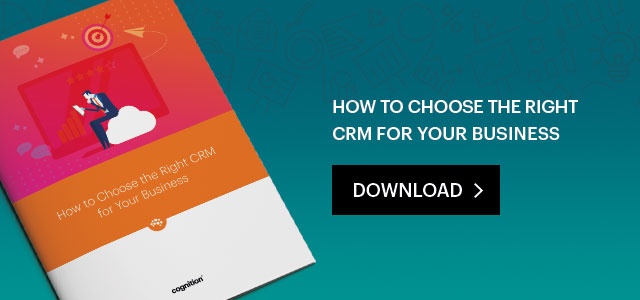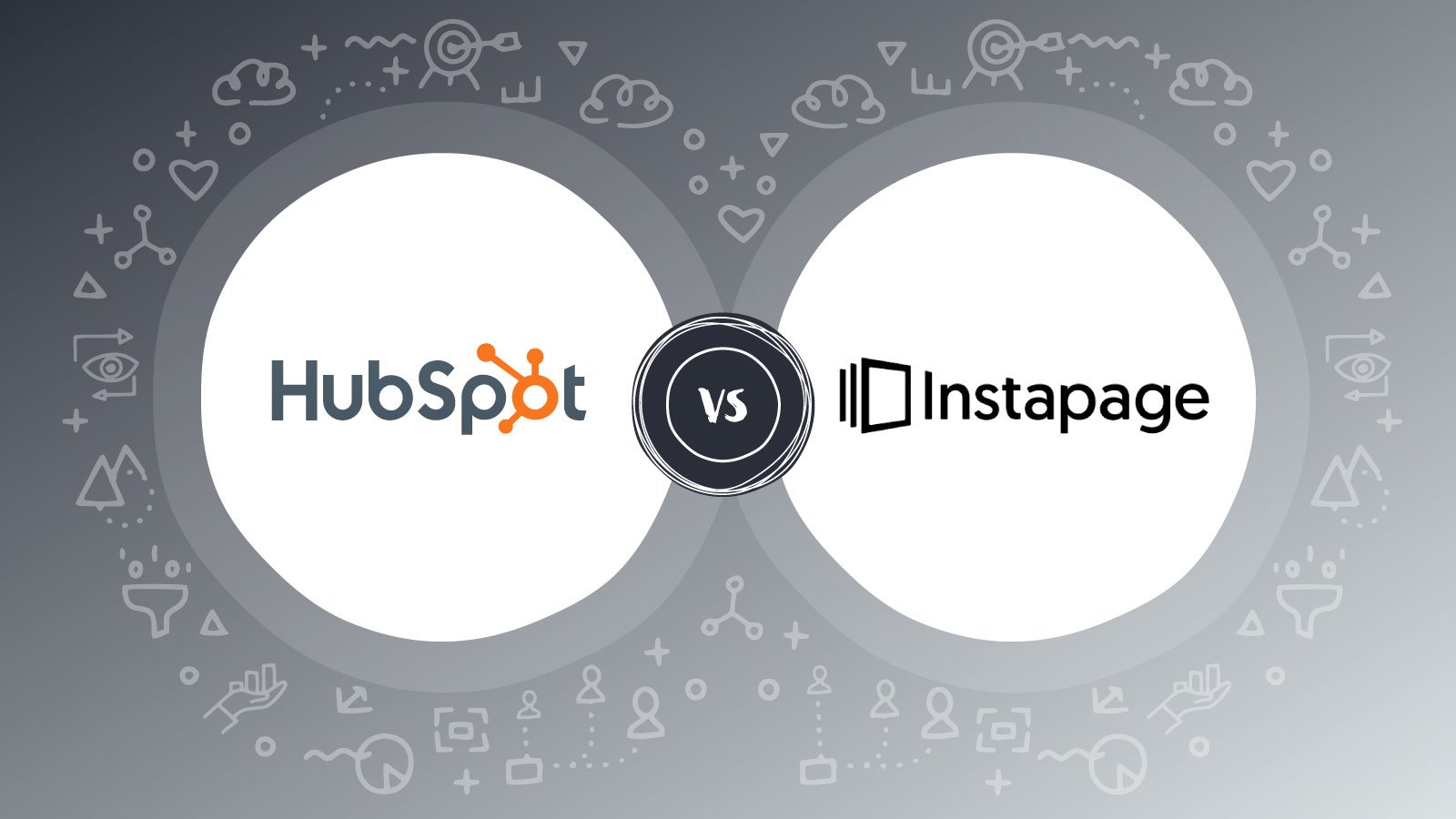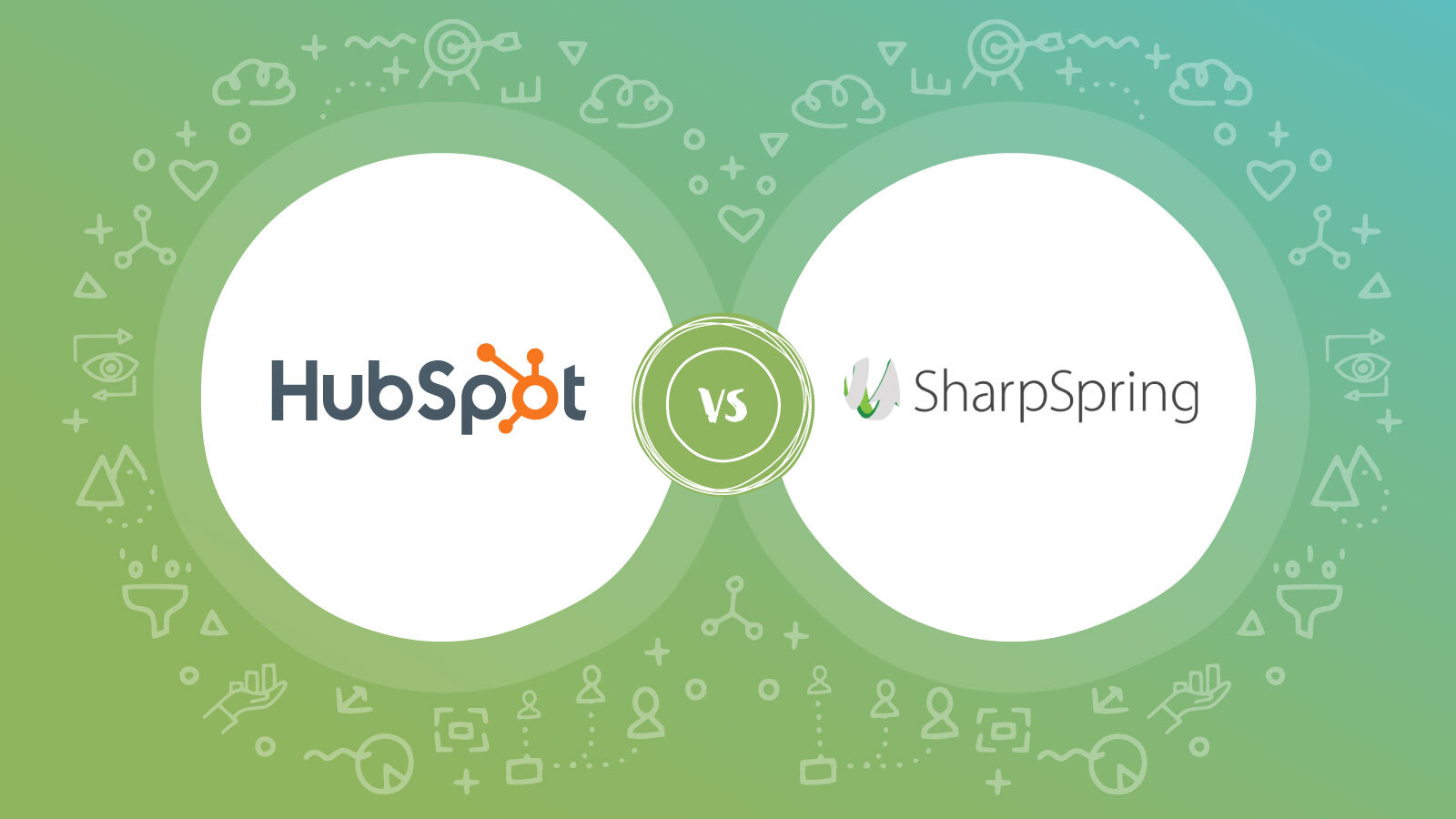This can, however, be a challenging task when you consider the amount of customer data you need to keep track of to effectively maintain relationships with them.
For many companies back in the day, this information was scattered across the organisation - in the mind of the customer-facing sales rep, in the stack of accounts on the desk of the finance officer, and somewhere in the admin’s inbox. While this may work for much smaller enterprises that don’t intend to grow, it is an ineffective and time-consuming mess for bigger, growth-aspiring enterprises. Furthermore, in the ever-expanding digital transformation landscape, a digital solution for managing customer relationships is imperative.
Enter CRM, the customer relationship management software that changed it all. In a 2014 report from Gartner, research vice president Joanne Correia wrote, “CRM will be at the heart of digital initiatives in the coming years. This is one technology area that will get funding because digital business is critical for companies to remain competitive." As predicted, CRM has become an integral component of the most successful companies in the world, with the worldwide CRM software market growing to $69 billion in 2020.
Why do businesses need a CRM?
Quite simply, without CRM, businesses will struggle to grow. As a business grows, the need for a centralised source of truth for all customer data grows too. Without it your team will be bogged down searching for information to deal with important factors and questions relating to customer relationship management. For example, who are your customers and what do they need? How do you get in touch with them and what should you say/offer? How do they interact with your content and how can you improve engagement? What does your pipeline of new business look like and how do you approach it methodically?
Your prospective and existing customers will be quick to find a more responsive vendor if you are unable to answer the above questions quickly and efficiently. To do that, everyone on your team needs context about every customer’s needs, wants, and current state in the pipeline, so they can engage appropriately, timeously and retroactively.
A CRM system aims to solve the following business challenges:
- Scattered, disintegrated information on leads and existing customers that are hard to consolidate.
- “Broken Telephone” effect where multiple people or different departments regularly interact with customers without context.
- No structured process to follow sales team productivity or sales pipeline progress.
A CRM offers one central place to organise all the details of your leads and customers so it’s easy for everyone on your team to gain insight into the state of your business, and the status of every customer relationship.
A good CRM platform should keep you organized, increase efficiency, provide clear insight on how to grow revenue, and be capable of scaling alongside your company's growth. See how HubSpot and Zoho, two leading CRM platforms, compare across some of the most crucial CRM capabilities.
What does HubSpot offer?
HubSpot is a cloud-based customer relationship management (CRM) platform that is designed to streamline businesses of any size and provide delightful customer experiences by bringing your team, tools, and data together in one place. With a flexible data structure, you can customise it to meet your business needs without adding unnecessary complexity. It’s easy and free to get started and has all the tools and integrations you need for marketing, sales, content management, and customer service. With more than 900 integrations and the ability to create custom apps, you can tailor HubSpot to fit your business exactly.
What does Zoho offer?
Zoho is a cloud-based customer relationship management (CRM) solution tailored to the needs of small and midsize businesses. From a single platform that combines customer relationship management (CRM), an exclusive email client for salespeople, visitor tracking, help desk, project collaboration, email marketing, social media management, customer surveys, activity management, and metrics and KPIs, it helps break down organisational silos and streamlines customer data management, providing enhanced data visibility to your customer-facing teams so that they can collaborate in real-time and provide a meaningful experience during every customer interaction.
HubSpot vs Zoho - Which is better?
On your search for the best CRM for your business, it’s important to weigh all your options to find the right fit. When stacked up against each other, both HubSpot and Zoho offer a wide variety of awesome features, however, there are some notable differences that will help you make a sound decision.
Without further ado, let’s delve into the nitty-gritty of CRM comparisons!
User Experience
HubSpot is known for its ease of use and intuitive user interface, making it one of the simplest solutions on which to get up and running in a flash. PCMag rates it as the Best Easy to use CRM for SMBs, and G2 reviewers, when assessing both solutions, found HubSpot Marketing Hub easier to use, set up, and administer than Zoho. Customers making the switch to HubSpot often report an improvement in their data quality, which, when paired with HubSpot’s powerful reporting and automation features, gives admins greater visibility into the overall health of their business.
While Zoho CRM has an impressive features list as well as integration with a long list of compatible Zoho products, the solution is not uniquely dedicated to user experience. One G2 reviewer writes “I had a tough time navigating within the CRM. The user interface did not present an easy way to create contacts and manage the communications.”
Functionality and Features
HubSpot's CRM platform and supporting Sales, Marketing, Content Management & Service Hubs work together to provide a powerful and feature-rich source of truth across the organisation. Features include lead generation tools, web forms, live chat and bots, advertising tools, and helpdesk tools. With powerful new Enterprise features like custom objects and multi-touch revenue attribution, HubSpot has the horsepower to keep up with even the most complex use cases. And, thanks to HubSpot’s robust partner ecosystem of thousands of solutions partners and more than 900 integrations, the platform can also be extended to meet each customer’s unique needs. In favour of HubSpot over Zoho, this G2 reviewer remarks, “In my opinion HubSpot is the best integrated inbound marketing tool in the market. It has all the tools you need to implement an inbound strategy. Moreover is a very dynamic tool that is constantly being updated and enhanced with new features.”
One of Zoho’s strengths is indeed their mammoth feature set, boasting capabilities including lead management, sales force automation, contact management, omnichannel interactions with customers, and a host of analytics options. All of this comes at a price though, in terms of costs and complexity. Zoho customers will pay 20-25% of their annual contract for additional support features and the costs increase as your company grows. Zoho is also unable to adequately provide support for its broad product line, which often require complex technical setups and recurring maintenance beyond the capabilities of most business users. Furthermore, although the features and tools on offer are branded as Zoho products, the underlying infrastructure is disparate, resulting in a disjointed user experience that can slow down your teams.
Customisation and Integration
In line with HubSpot’s dedication to ease of use, admins, reps, and managers have the freedom to organise and administer their CRM without the need to hire a dedicated admin or spend months on custom development work. For more sophisticated customisations, HubSpot offers custom objects, where you have the flexibility to name objects, determine what properties they have, and decide what other objects they can be associated with. This enables HubSpot users to architect their CRM according to their business needs and seamlessly import crucial third party data into the CRM. All of HubSpot’s products have been built in-house from the ground up, coupled with a thriving ecosystem of integrations and a flexible data structure that enables you to stay agile as you scale. With everything powered by the same database, all hubs, tools and integrations connect seamlessly, which means that all of your teams and departments are working off the same system of record.
Zoho users, on the other hand, face particular challenges when it comes to integrations and deployment, with Gartner reviewers giving Zoho CRM lower ratings across the board. When it comes to integrations in Zoho, many combinations require additional connections or integrations to sync across different applications. For example, the complexity of adding features and integrations requires establishing synchronization rules and connections as you would for a third party service or marketing solution. One G2 user writes, “Glitchy programming, especially with third-party integrations. Sometimes haphazard programming allowing for some customizations, yet missing others. Support does not pay attention to details and takes several explanations to receive needed support. Support can also take days or more to resolve.”
Customer Service and Support
Customer service is one area where HubSpot really shines bright. HubSpot consistently goes the extra mile to provide world-class customer support and self-help resources, including HubSpot Academy - ranked one of the top online learning platforms in the world. One G2 reviewer writes “ -Excellent customer support - I think the other software product companies should learn from HubSpot. Every time I connect with customer support I feel like I am talking to SMEs and not just routing agents. You are connected right away to an SME. You don't waste time and get your solutions quickly.
- Incorporating feedback - I also noticed HubSpot very open to feedback from user community and usually taking action on them and incorporating them during the product evolution.”
Where Zoho makes up in extensive features, it sorely lacks in customer support. HubSpot triples Zoho in favorable reviews on G2 for “Quality of Support” and “Ease of Doing Business With”. Reviewers also preferred doing business with HubSpot Marketing Hub overall, and when comparing quality of ongoing product support, reviewers felt that HubSpot Marketing Hub is the preferred option.
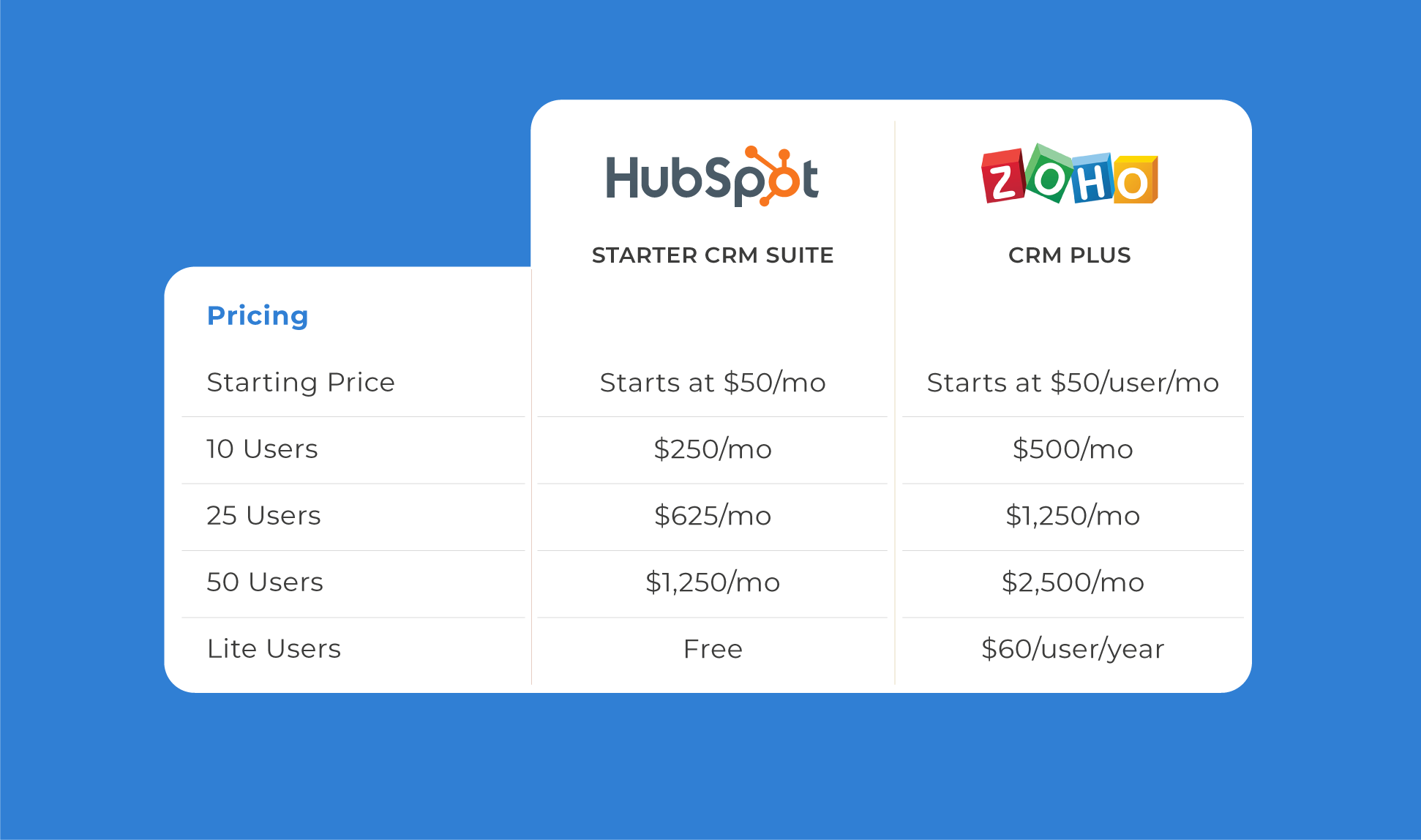
Ready to make a decision?
As you may have realised, G2 and Gartner reviewers consider HubSpot the preferred CRM solution in just about every category. While both solutions are recognised as leaders in the market, there are certain features that set them apart. Where HubSpot’s unrivalled dedication to user experience, customer support, seamless customisation and freemium pricing model make their CRM solution uniquely popular with most small to medium enterprises, Zoho’s long list of features can be enticing for many companies too. The caveat, however, is the cost at which those features come. If you don’t have an in-house IT department to provide technical setup and ongoing support, and if you don’t want to spend more as your business scales, HubSpot is definitely for you! Here’s a breakdown to help you decide.
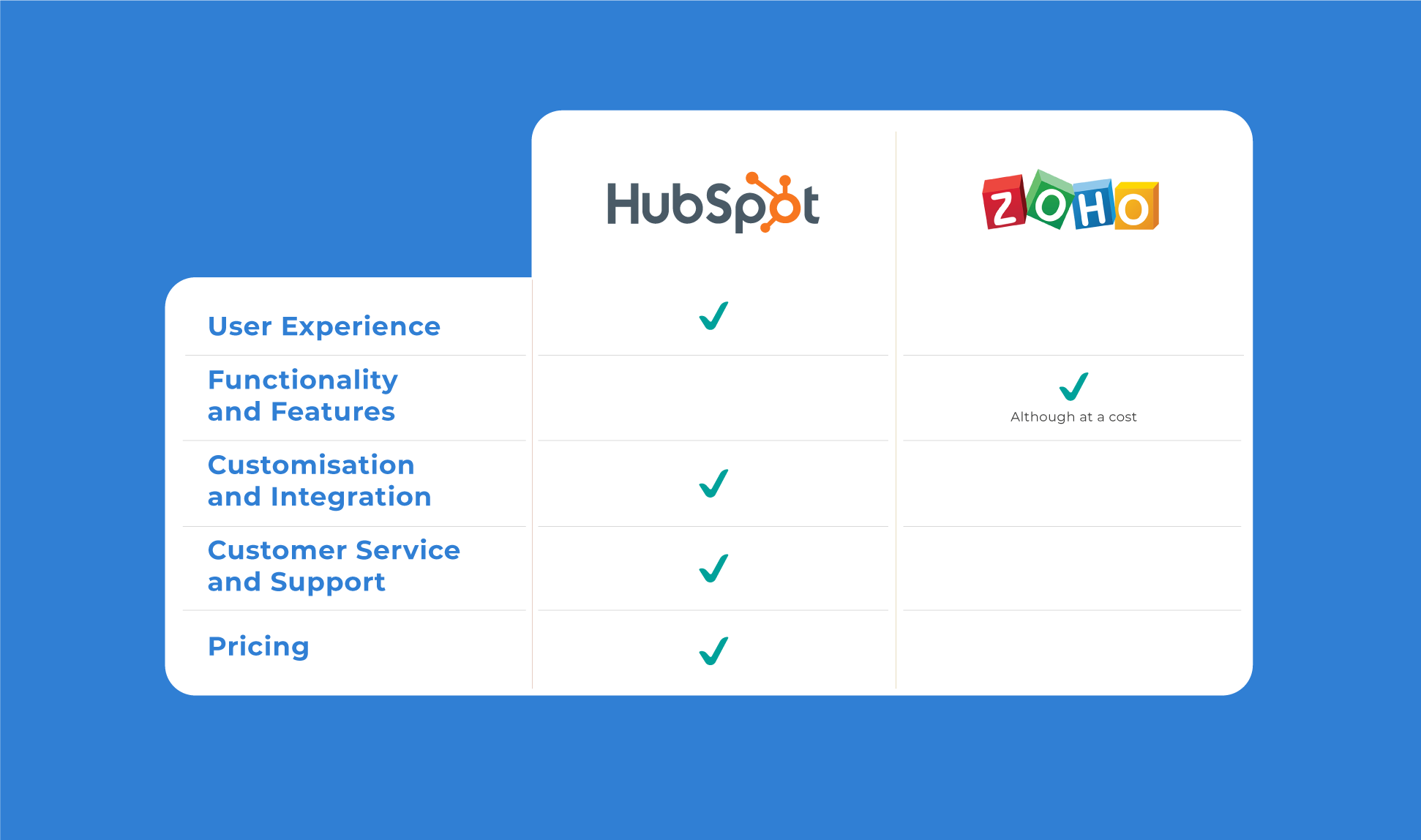
Choosing the right Customer Relationship Management platform is a business necessity, without it, engaging and satisfying your audience is near impossible. With there being so many CRM platforms out there, we've put together a guide on how to choose the right one for your business.
Looking for more guidance on your digital marketing? Our team is here to help, so contact us today!

